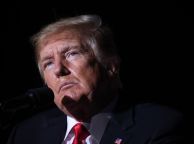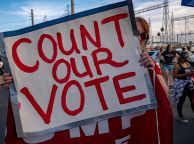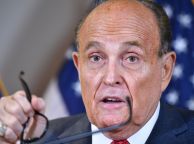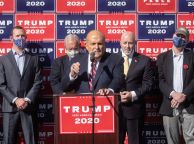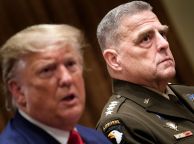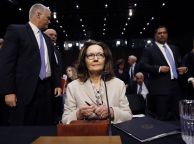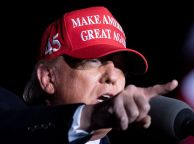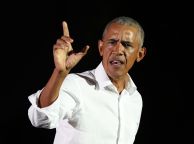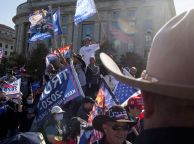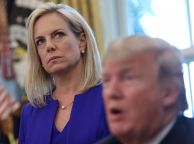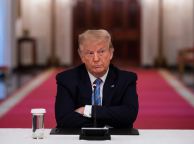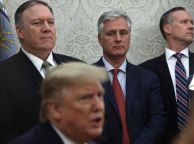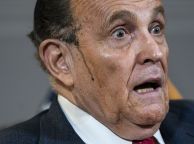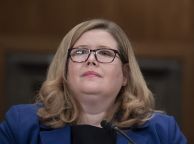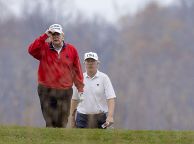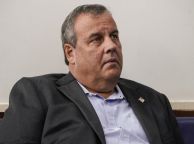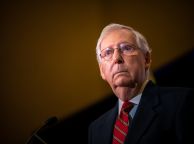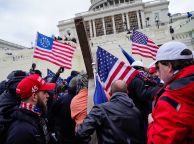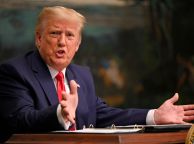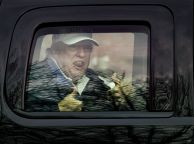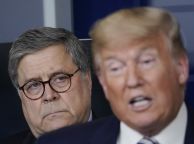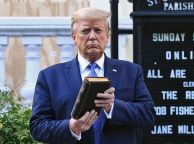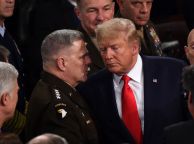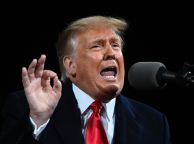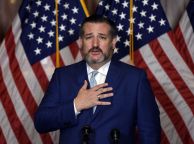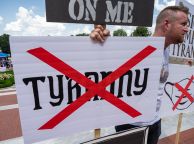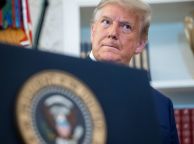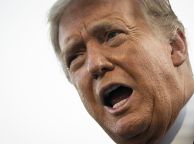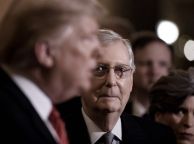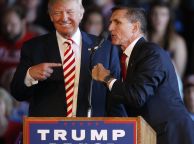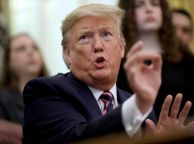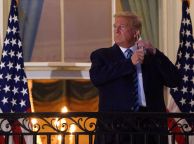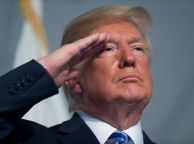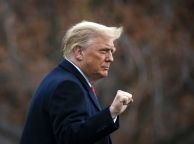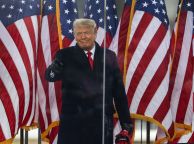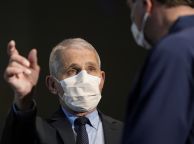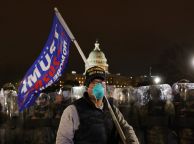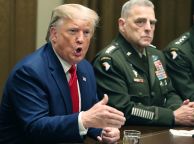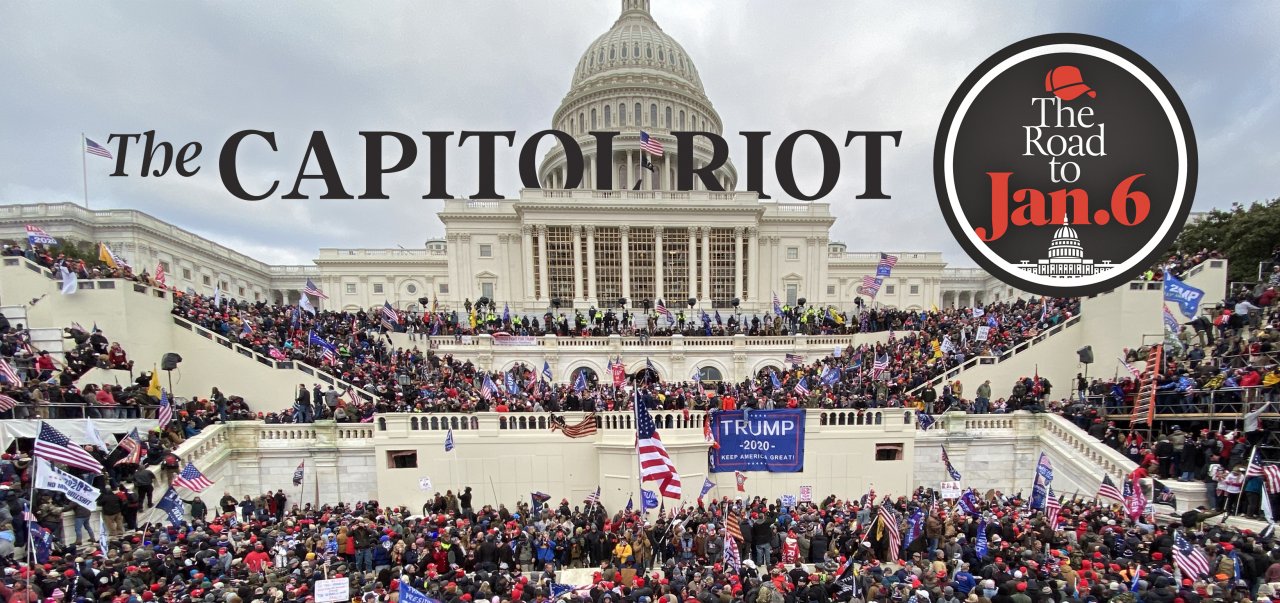
Donald Trump's Former Ally Chris Christie Called Rudy Giuliani a 'National Embarrassment'
In this daily series, Newsweek explores the steps that led to the January 6 Capitol Riot.
"Stop golfing and concede," Republican Governor of Maryland Larry Hogan tweeted at Donald Trump on Sunday, November 22. Hogan said the president's "ridiculous challenges that are not based on fact need to end."
"We've always had a peaceful transition of power," he said on CNBC.
"The president has been saying for months that all mail-in voting was going to be bad and that they were going to be cheating. And look: if there are issues and problems, we ought to root them out," Hogan said on PBS's Firing Line.
Donald Trump responded, of course, in a tweet: "Report: Maryland Gov. Larry Hogan, Anti-Trump Hero, Paid for Flawed Coronavirus Tests from South Korea via @BreitbartNews. This (Republican In Name Only) will never make the grade. Hogan is just as bad as the flawed tests he paid big money for!"

"If you had done your job," Hogan tweeted in response, "America's governors wouldn't have been forced to fend for themselves to find tests in the middle of a pandemic, as we successfully did in Maryland. Stop golfing and concede."
Hogan had been a consistent and outspoken critic of the president.
But Chris Christie? The former governor of New Jersey and an early Trump ally? He appeared on ABC's This Week calling Trump's lawyers a "national embarrassment," saying they were relying on false conspiracy theories rather than evidence of voter fraud. "If you've got the evidence of fraud, present it," he said.
"I have been a supporter of the president's. I voted for him twice. But elections have consequences, and we cannot continue to act as if something happened here that didn't happen."
Christie and presidential campaign lawyer Rudy Giuliani then had a bitter phone call.
On that Sunday, several more prominent Republicans also called for Trump to end his legal challenges, to concede and to start cooperating in the transition process. Former Ohio Governor John Kasich, who ran against Trump in 2020, and John Bolton, Trump's former national security advisor, said it was important for more Republicans to speak up.
Michigan Representative Fred Upton, a Republican, told CNN the voters in his battleground state "spoke" by choosing Joe Biden.
North Dakota Senator Kevin Cramer, Republican, said on NBC that it was "past time to start a transition."
Pennsylvania Senator Pat Toomey, also a Republican, said Trump should concede because his lawyers had "exhausted all plausible options."
Hope Hicks, the longest-serving Trump political aide, who had returned to the White House in March 2020 and was an active member of the Oval Office entourage, told the president that he should start thinking about his legacy--that focusing on the election too much ran the risk of distracting from all the good he had done. She didn't ask him to concede, which would have been a sure route to being banished, just to think about his legacy.
Everyone close to Trump knew that what he saw on TV was more powerful and resonated more deeply than anything he read or even heard, and they knew he was still spooked by Rudy Giuliani's melting-hair-dye disaster, as well as the near-universal criticism on television of Sidney Powell and her claims of "communist" vote manipulation. His grievance was with the establishment in Washington and New York, and with the deep state and the news media, not Beijing or Caracas.
Rudy Giuliani sensed that the ice under him was thinning. According to Michael Wolff's "Landslide," the family "put it all on Rudy because Rudy was crazy, or drunk, or opportunistic, or all three."
Later that day, Giuliani distanced himself from Powell. The campaign released a statement saying Powell was "practicing law on her own" and was not a member of the Trump legal team. It was Powell's fault, the pollster's fault, the campaign's fault, Rudy's fault. No one was really in charge, and though the president was bitter about his Republican defectors, it wasn't his fault.

